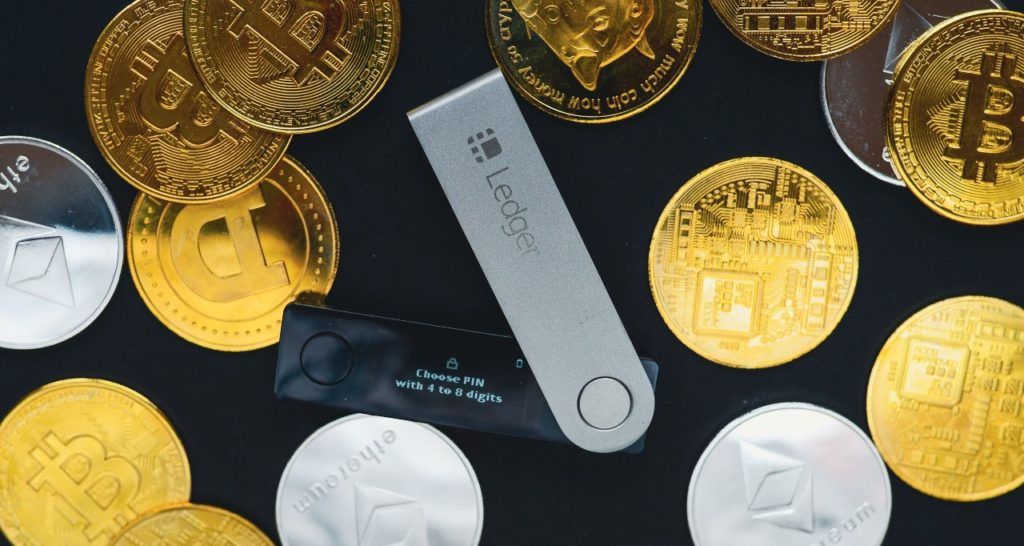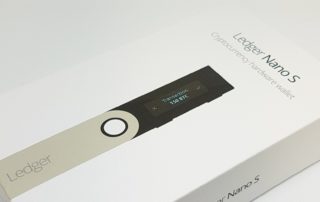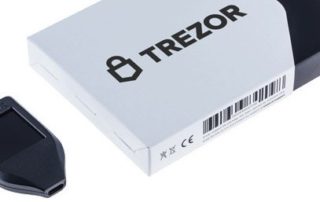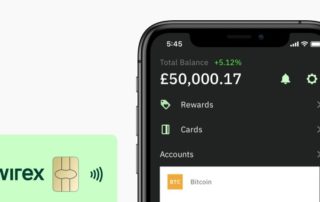Looking for trustworthy crypto wallet reviews?
Anyone serious about holding crypto, needs to gain a solid understanding of crypto wallets – making the information below, invaluable, if you’re seeking crypto wallet mastery and the best crypto wallet reviews, focused on crypto storage.
In this section we cover multiple ways to store your Bitcoin or crypto, be it a web wallet, app wallet, hardware wallet, desktop wallets and so.
A wallet is a way to store your bitcoin or cryptocurrency. Think of a wallet being like a bank; a place where you keep and safely store your ‘money’, but its not a bank, it’s fully owned and managed by you if it’s a hardware wallet or possibly by someone else if it is a non-custodial wallet. We highly recommend custodial hardware wallets for storing crypto. However, in this section, we review various types of crypto storage types. See all our crypto wallet reviews here…
Bitcoin Wallet | Type | Coins | Highlights | Cost | Go to Site |
BTC, LTC, ETH, XRP, DOG, NEO, BCH, BTG, ZEC & more | $59 | ||||
BTC, LTC, DASH & 500+ cryptos | $59 | ||||
BTC, LTC, ETH, XRP & WAVES | $1.50 |
Our Crypto Wallet Reviews
Read our detailed crypto wallet reviews to find the best way to store your Bitcoin and cryptocurrency
Ledger Nano S Review
Ledger Nano S Review In this Ledger Nano S review we give a non biased review of this wallet.
Trezor Hardware Wallet Review
Trezor Hardware Wallet Review In this Trezor Hardware wallet review we give a non biased review of this wallet.
Wirex Wallet Review
Wirex Wallet Review In this Wirex Wallet Review we give a non biased review of a popular Crypto Wallet.
What is a Crypto Wallet?
Like normal fiat/money, crypto is best stored in a wallet, and there are various types of wallets and storage available. One of the hardest things to understand when you are new to crypto, like Bitcoin and Ethereum, is how to buy it and how to store it safely. A crypto wallet allows you to put your mind at rest, however there are several different types of storage that you need to know about before you get started.
“A wallet is software that holds all your addresses. Use it to send bitcoins and manage your keys…. A wallet is simply a collection of addresses and the keys that unlock the funds within.”
Antonopoulos, Mastering Bitcoin
Definition: A cryptocurrency wallet is a device, physical medium, program or a service that securely holds the public and/or private keys for transactions of crypto coins such as Bitcoin.
If crypto is digital why do I need a wallet?
Crypto is fully digital in the sense that you will never hold a physical Bitcoin in your hand like a gold coin. But in order to access you bitcoin or other cryptocurrencies, you will need to have a private key.
A private key is an encrypted string of numbers and letters that reference your ownership of your crypto on the web. A private key is the most critical and sensitive thing to own once you have a few bitcoin to your name; storing it safely is incredibly important! So, crypto wallets don’t actually hold your crypto – it’s your private key that accesses all your crypto.
Key Points
- Crypto is digital, so you will never hold a physical Bitcoin (unless you hold an early collectible). To access your cryptocurrencies, you need to obtain a private key.
- Crypto wallets don’t actually store your crypto; your private key gains accesses to all your currency.
Types of Crypto Wallets:
To summaries there are 5 types of crypto wallets:
- Hardware wallets
- Paper wallets
- Desktop Wallets
- Mobile Wallets
- Web Wallets.

Photo by olieman.eth on Unsplash
Where do I get a crypto Wallet?
Before you choose your crypto wallet, our crypto wallet reviews will give you deeper insight into each type of wallet available:
Hardware wallets
A hardware wallet is a piece of hardware that can be used to store your crypto. This is also referred to as cold storage and non custodial, as mentioned above. Hardware wallets can seem a bit daunting for new users, but in reality they’re very simple to use: just connect your wallet to you device, when you want to manage funds and trade.
- Hardware wallet stores your crypto privately
- Hardware wallets are ‘cold’ storage
- Plug in to computer to manage funds
Top 3 Hardware Wallets
> Trezor Site / Our Trezor hardware wallet Review
The Trezor hardware wallet was released in 2014, and is a hard storage crypto wallet with an excellent range of features, when it comes to security, functionalities, cost and user experience. Fundamentally, Trezor is a cold storage wallet, that stores Bitcoin, plus 500+ diverse cryptocurrencies. Trezor is a hardware wallet that combines the security advantages of cold storage, with the speed and convenience of hot wallets. This hardware wallet’s micro key size, instantly connects to a computer via USB, with Bitcoin and private keys stored offline, plus signed-for transaction options, for extra safety. See our full Trezor review.
> Ledger Site / Our Ledger Nano S Review
The Ledger Nano S was released in 2012 and is a Bluetooth enabled secure device that stores private keys; instantly secure all your crypto assets, any time and any place. This good looking hardware wallet, can store up to 100 cryptocurrencies – including leading cryptocurrencies like Bitcoin, Ethereum, XRP and Litecoin. The Ledger Nano S can be set-up via a mobile app, for extra convenience on the go. While the Ledger Nano S is the classic version of the wallet (Nano X released 2019), it remains a very popular option, particularly for crypto wallet newbies and the average crypto holder. See our full Ledger Nano S review.
> Wirex Site / Our Wirex hardware wallet Review
Released in 2012, Wirex is an crypto/fiat mobile wallet app, supporting both classic fiat assets, as well as cryptocurrencies. Wirex is perfect for crypto holders who hold a fairly core range of coins – with BTC, LTC, ETH, XRP, and WAVES currently supported. Wirex is a flexible hybrid crypto fiat wallet, which has the claim of being the first to let you utilise fiat currency acceptance with blockchain flexibility; instantly connect your bank cards to the app, while simultaneously storing you cold crypto, or converting it to fiat. Wirex is available in 130 countries but awaits US compatibility. See our full Wirex review.
Web Wallets
Offered by most exchanges, web wallets are non-custodial (meaning you will hold your crypto personally). These wallets are useful when it comes to protecting against hardware failure or phone theft. The downside it the potential vulnerability to hacking.
- Online wallets protect against hardware failures & device loss
- Multiple device access
- Potential hacking risk
> Coinbase Site / Our review of crypto exchange Coinbase
Coinbase is one of the most well known crypto exchanges and online wallets. Launched in 2012, when you create an account at Coinbase, and buy or transfer crypto, the funds will be stored in your online wallet. With 180+ cryptos to trade, the Coinbase wallet offers a huge range of diversity, and the chance to convert holdings into other digital assets. The cryptocurrencies that can be traded and held in a Coinbase wallet, include Bitcoin, Bitcoin Cash, Ethereum Classic, Litecoin, Ripple, Tezos, ADA, XRP, DOGE, UNI, MATIC, XLM, AAVE, MANA, and many more. The Coinbase online wallet is very secure, with cold storage back-up for 99% of the assets on the exchange from users. In theory, your crypto is there un-hackable on Coinbase, but like all online wallets, it’s best to use the exchange wallet, for funds that you’re trading regularly, when buying new crypto – and not for long-term holding. However, you can also download the Coinbase Wallet app to take advantage of the benefits of a non-custodial wallet.
> Crypto.com Site / Our Crypto.com Wallet Review
Crypto.com was created in 2016 and has become one of the leading crypto exchanges, with a highly secure online wallet that lets you trade and hold a vast number of cryptos. Like Coinbase and Binance, you can trade safely thanks to cold-storage back-up of assets. However, it’s still advisable to consider using your online wallet for trading and buying crypto, and then considering cold storage for holding. Another option is the Crypto.com DeFi Wallet, launched in 2020, which has taken the brand to the next level. The online wallet allows you to to safely store your crypto in a highly protected environment with your private keys. You can trade 78+ cryptocurrencies, including Bitcoin, Ethereum, Uniswap, Compound, and Yearn, and earn on 35+ tokens, with Biometric and 2-Factor Authentication.
> Binance Site / Our Binance Wallet Review
Binance is rapidly gaining global attention in the crypto sphere, since its creation in 2017 – offering a high quality crypto exchange and online wallet. Along with 500+ tradable and storable cryptos, including BNB, Bitcoin, Dash, Storj, Solano, Cosmos, Compound, Ethereum, Litecoin, Cardano, and Dogecoin, the Binance wallet let your securely store your coins, with cold-storage back-up, plus the Binance SAFU fund for insurance. Binance wallet also features the exchange’s two-factor authentication (2FA) and universal two-factor authentication (U2F), custom pins, and seed coding, all offering further security. Binance wallet also enables you to earn via Binance Earn, Binance Pool, and Liquid Swap. All in all, while it’s still advisable to store long-term holding in cold storage, Binance is one of the safest exchange-wallets on the market, ideal for day trading and general crypto transactions.
Paper wallets
Paper wallets are old school, not safe and very unpopular, so we don’t recommend them. But you can read more about them here on wiki – Read more
- Paper wallets are bits of paper with keys & QR codes to enable crypto transactions
- Paper wallets were considered a secure way of performing crypto transactions
- Now outdated
Desktop Wallets
Desktop wallets are wallets that live on your computer. They are pieces of software that you download.
- Desktop wallets are installed on a computer and provide full user control
- Desktop wallets function as an address bar to send/receive crypto.
- Works with a private key for security
Keep in mind that a computer that is connected to the internet is always vulnerable, so this is not the most ideal kind of storage, but there are some decent desktop wallets out there, such as our Top 3 Desktop Wallets:
Top 3 Desktop Wallets
> Bitcoin Core Wallet – This wallet can be downloaded from here.
Created in 2016, Bitcoin Core Wallet is the original solution as per Satoshi Nakamoto’s design – and it’s completely free to download. The Bitcoin Core wallet is compatible with Windows, Mac and Linux, and can only be used currently with Bitcoin. One key advantage of the Bitcoin Core wallet, is that it’s very light on disk space and memory, while offering excellent security, privacy, and stability. While it lacks the features of next generation crypto wallets, you get speed, efficiency and full control over your Bitcoins; your can no be frozen or lost to third parties, unless you fail to secure your account and backup your wallet. Bitcoin Core uses full node validation and rotating addresses, the highest level of security. You can also take full control over network fees, to optimise value. Bitcoin Core is an excellent basic Bitcoin desktop wallet.
> Greengrass Wallet – is another bitcoin only wallet. Its technology stack and security stands out among some other players in the space.
GreenAddress Wallet is a dedicated Bitcoin desktop wallet, priding itself on the very highest levels of secure BTC storage, transactions and low fees. Its technology stack and security stands out amongst others in the industry, with the motto of ‘The safer Bitcoin wallet that puts you in control’. Top features include ‘Watch-only mode’ which lets you view your BTC without a full log-in, with add extra safety when you want it. You can also enjoy double protection, thanks to your own key and GreenAddress’ keys, set spending limits, rate limit transactions and always have full control. Greengrass Wallet syncs with many leading crypto platforms, including BitStamp, Kraken, LocalBitcoins, The Rock Trading, BitFinex, Bull Bitcoin, Kiwi-Coin, Luno, and CoinGecko. If you’re looking for a top dedicated Bitcoin desktop wallet, Green Address has great credentials.
> Atomic Wallet – seems to be a decent wallet solution. It works on an above average number of computer systems and is available in multiple languages. The wallet allows storage of over 500 different cryptocurrencies and is endorsed by several key influencers in the crypto space.
Atomic wallet launched in 2017 and has over 1M global users – plus endorsements from many top industry influencers. This wallet is cold, since all passwords and data are stored on the user’s device, or other cold options (the security risk comes from losing your device, or backup phrase). Atomic wallet lets you buy, sell and convert over 300 coins and tokens, with coins including Bitcoin, Ethereum, XRP, Litecoin, XML, Bitcoin Cash, Tron, AAVE, Dogecoin, and Tezos. You can also staking a wide range of coins on the Atomic wallet, including AWC, Solana, Cardano, Zillaq, Cosmos, Tezos, Band, and Tron.Currently you can stake SOL with a projected 7% APR. Atomic Wallet is a good looking and slick desktop crypto wallet, with excellent user ratings.
Mobile Wallets
Mobile wallets are dedicated APP that handle the holding of crypto. Most crypto exchanges come with an app and these might be indirectly viewed as mobile wallets. Mobile wallets are usually defined per mobile type; in other words Android or Apple (iOS).
- Mobile wallets are dedicated Apps for crypto holders
- Top crypto exchanges offers Apps which work similarly to mobile wallets.
> Wirex App / Our Review of Wirex wallet
Wirex Wallet is a very popular Android crypto wallet, which scooped mobile wallet of the year in 2014, having been launched that year, by Dmitry Lazarichev and Pavel Matveev. Wirex has a user friendly look and supports Bitcoin, Ethereum, Litecoin, XRP, Chainlink, Maker, Waves, Wollo, Dai, Nano, XLM, and the Wirex Token (WRX). The wallets can be run on desktop and mobile device, and with quick verification, you can join the 3.5M+ global users, in minutes. Used across 130 countries, Wirex is one of the most trusted mobile crypto wallets in the world, accepting 10+ fiat currencies, and enabling crypto transactions with fees from 2.5%. Another top feature, is the chance to earn 2% cashback in WRX, when you use your Wirex card in-store or online.
Mycelium Wallet – is the most talked about Bitcoin Mobile Wallet for Andriod. It won mobile wallet of the year in 2014 and it seems quite user friendly.
Mycelium is a leading mobile Bitcoin wallet for people who want to control their crypto on the go. This wallet is exclusive to Bitcoin, so it’s one for BTC maximalists, but it has lots of rich features, for advanced users. Mycelium wallet has a long legacy, building up global trust since 2013. The app supports both Android and iOS mobiles, with open source functionality and rotates addresses, giving it strong foundations when it comes to security and integrity. Mycelium is technically a hot wallet, but you can integrate transactions from a cold wallet, including importing and synching private keys. A watch only setting boosts security, while QR code swiping makes transactions a breeze.
Edge – is referenced a lot online as a good Apple Mobile Wallet.
Often cited as a good Apple mobile wallet, Edge is fast, good looking and easy to use, with a good range of features for a dedicated mobile crypto wallet. The wallet currently has a select range of seven supported coins – Bitcoin, Ethereum, Litecoin, Bitcoin Cash, Dash, Augur, and Wings. Edge wallet is also upgrading to enable users to trade crypto via Kraken, Bity, WageCan, and Bitrefill – this should also increase the supported cryptos. One of the smartest features is the ‘Shapeshift’, which enables users to swap coins live in their wallet, without synching with an external exchange. Unlike hardware wallets, the Edge wallet is absolutely free to use and download from the Apple App Store and the Google Play Store. Fees are kept to a minimum, while Edge backs-up your data on the cloud, for optimal security. Edge is a great quality mobile wallet, with a big following across the globe.
Hot & Cold: What is the Best Crypto Wallet?
In our experience, the best crypto wallets hardware wallets, because they offer cold storage that is non-custodial, which is much more secure. That said, we’re not going to sit here and pretend that we only store our crypto on cold storage, since different wallets have their advantages when it comes to trading, investing, holding crypto, and different platforms and products.
Every kind of wallet has a different purpose for different opportunities. For crypto gambling deposits, for example, you will definitely not use your cold storage wallet.
What is Cold Storage?
Cold Storage is the the safest kind of storage, because the wallets are disconnected from the internet. Cold storage wallets include, Hardware wallets (physical hardware like a pen drive) and Paper wallets (completely non technical, just a piece of paper that holds your private details (private keys) physically in black and white on paper). Whilst paper wallets might sound easy, secure and hassle free, hardware wallets offer much better long-term options.
- Cold Storage is the the safest storage
- Cold storage wallets are disconnected from internet. Read a the ledger nano s wallet review
What does Non Custodial mean?
Non-Custodial, refers to your private keys and means that no one else holds this key other than you. Whilst the risk of losing the key can make you cry, owning your own keys (having a non-custodial key setup) is the safest way of owning crypto. No middle man can ever come between you and your crypto. No bank or exchange can use your crypto, or trade using your crypto (as banks often use their liquidity to trade on their own account). Your crypto is owned by you and held by you directly; no one else can touch it!
- Non Custodial denotes your private keys
- Only you holds your key data
- Non custodial keys support the safest crypto.
- The risk of a lost wallet is loss of access to your funds
Custodial vs Non-Custodial Wallets
Custodial wallets are types of digital wallets that hold your private keys and serves as a backup for asset security. You can use mnemonic phrases to ensure that losing private keys, doesn’t loose access to your funds, and potentially cost you thousands.
- Custodial wallets are digital wallet to protect your private keys for asset backup and security
- Mnemonic phrase can be used for extra security
- Free and instant transactions.
What are Hot Wallets?
Finally, since there are cold wallets, there have to be hot wallets as well! Think of a hot wallet like a hot potato, something you don’t want to hold onto for too long. Hot wallets are best used for crypto that you are actively trading or exchanging. While we never advise you to put your savings or HODL’ed crypto into a hot wallet, it’s worth nothing that leading exchanges, are increasingly storing the bulk of customers’ funds in cold storage, to enhance security.
- Use Hot wallets for crypto that you are actively trading or exchanging.
- Connected to the web
- Hot wallets are more at risk of hacking, regulation & technical vulnerabilities.
Crypto Wallet Security
Irrespective of the crypto wallet you choose, there are some clear no-brainers when it comes to keeping your crypto safe. Let’s run through these briefly.
- Hardware wallets: Buy your wallet from an official source, with sealed packaging.
- Private keys: When creating private keys, do not keep a copy of this online. Always use the documentation provided and store it somewhere safe and ‘off-person’ (not in your physical wallet for example)
- Desktop, mobile & hot wallets: Ensure two-factor authentication is ON. 2FA will safeguard illegitimate logins onto your accounts.










